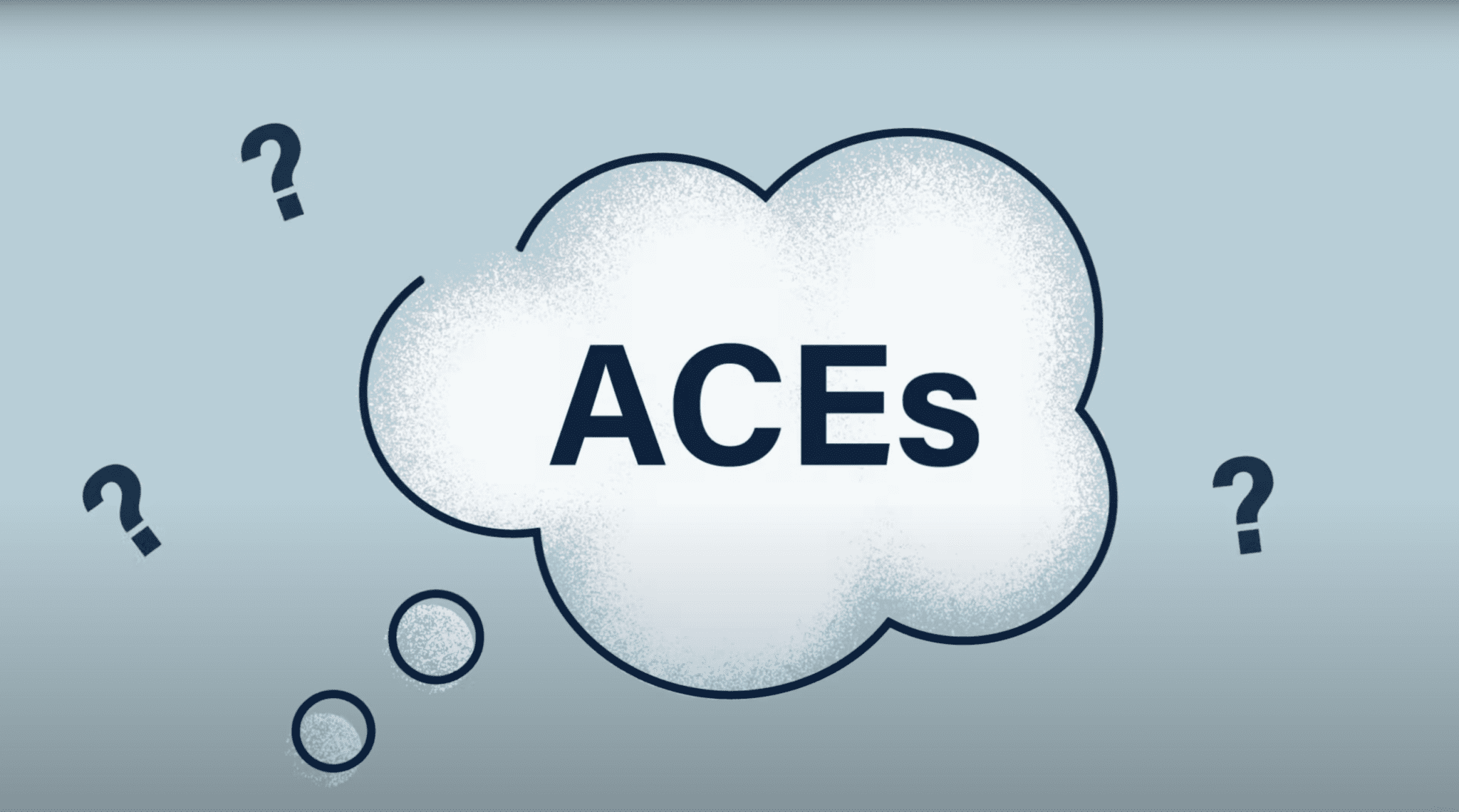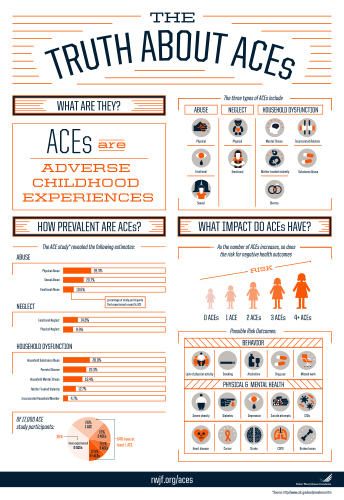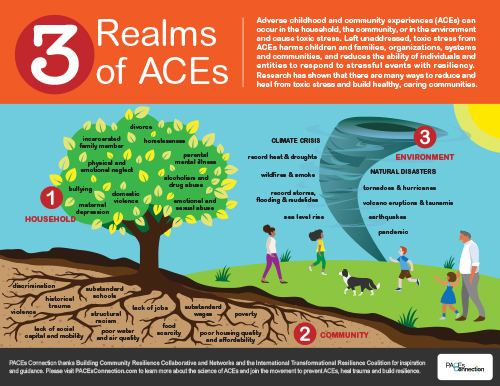
hard things happen
But these things do not define us.
Hurtful experiences happen to all of us. These things do not define us, but they can affect us throughout our lives. Research shows that an individual’s ACE score may be an indicator of future physical and mental health hurdles.
Resilience is a person’s ability to heal and bounce back.
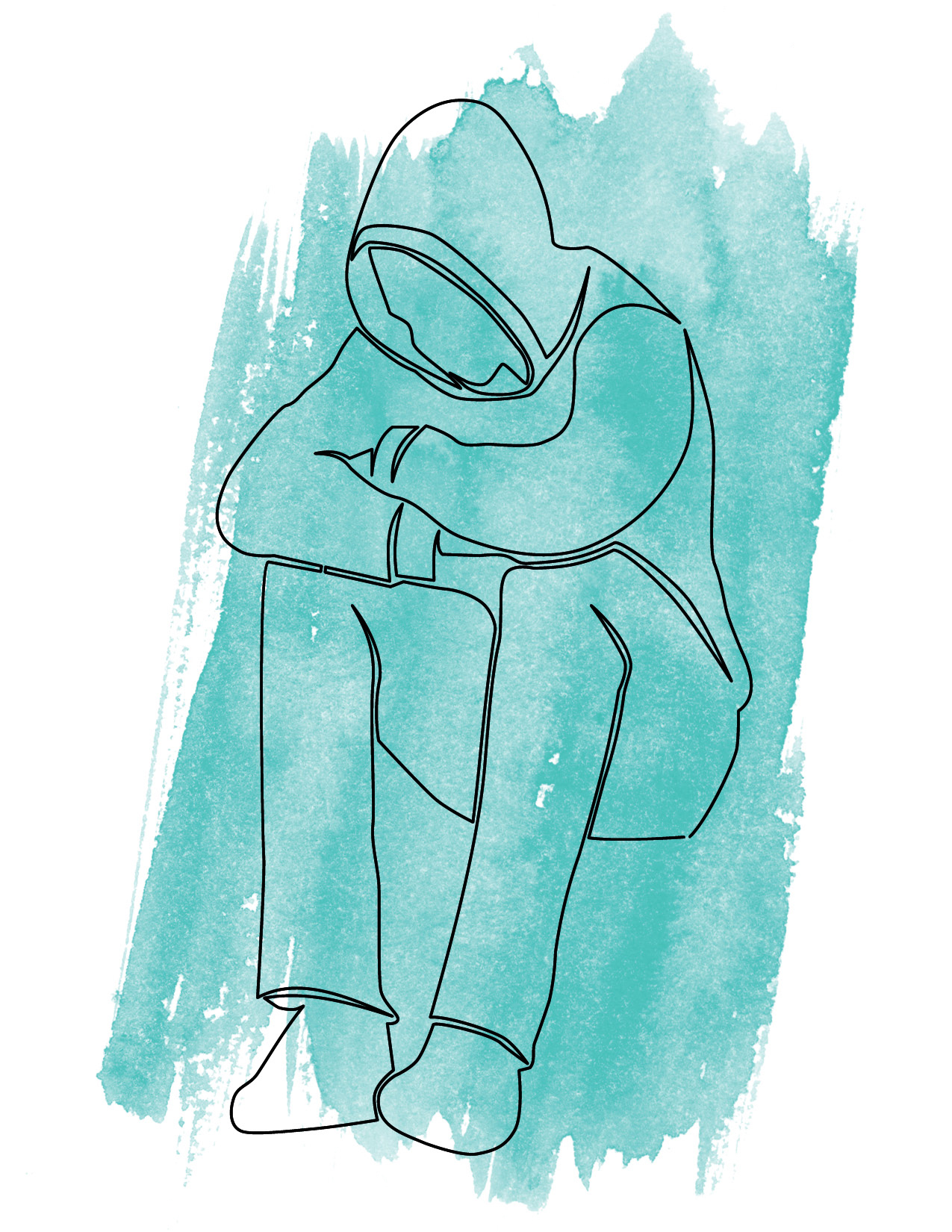
The world is a better place with you in it.
If the hard things that have happened to you seem like too much to bear,
know that there are people who care about you and want to help.
Call or text 988 if you are in crisis.
To get help for yourself or a loved one, contact the Maine Crisis Line: (888) 568-1112
What are ACEs?
ACEs is short for Adverse Childhood Experiences.
In simplest terms, the hurtful things that happen to us when we’re young can have lasting impacts on our health and wellbeing. The more hurts we experience, the greater the impact may be.
The Truth About ACEs
This infographic from the Robert Wood Johnson Foundation explains the concept of ACEs quickly and simply.
3 Realms of ACEs
This infographic from PACEs Connection explains the idea that adversity can happen in a household, a community, or the larger environment.
How to find your ACEs score
Your ACEs score can be a tool to help understand your health risks.
WARNING: The questions may bring up feelings that are hard to deal with. Please make sure you have someone you can talk to if needed.
As you take the survey and consider the results, please keep these things in mind:
• ACEs are common
• You can heal from ACEs
If you are in crisis, please call or text 988.
The link between ACEs and health
In the late 1990s, researchers uncovered a powerful link between childhood experiences and health. They talked with over 17,000 people about the things they had experienced before they were 18 years old, asking about whether people had experienced any of several difficult experiences in childhood, including:
- Abuse (physical, emotional, sexual)
- Neglect (physical, emotional)
- Substance use in the home
- Mental illness in the home
- Domestic violence in the home
- Family member in prison
- Parents/guardians separated or divorced
Further work on this topic found additional childhood experiences with similar health links including: community violence, racism, bullying, natural disasters and more. We also know LGBTQ youth are placed at a higher risk of experiencing trauma symptoms and suicide because of how they are mistreated and stigmatized in society.
For each of these kinds of challenges a person experienced, their ACEs score increased by 1. A person experiencing none of the categories of difficult experiences had a score of 0. A person who experienced 4 different categories had a score of 4. With these scores in mind, they looked at the health of those 17,000+ people.
This led to some important realizations …
ACEs are everywhere & common
ACEs studies have been done many times, with each confirming the fact that ACEs are widespread in our society, regardless of income, skin color, education, etc.
64%
of the original study had at least one ACE.
12% had 4 or more.
64%
of adults in a CDC survey (across 50 states) reported they had experienced at least one type of ACE before age 18.
Nearly 1 in 5 reported 4 or more ACEs.
74%
Percentage of Maine high school students reporting 0–3 ACEs.
(2023 data)
26% had 4 or more.
As a person’s ACEs score increases, so does their risk for poor health and wellness
Compared to a person with an ACE score of zero, a person with an ACE score of 4 is…
4x
as likely to have Chronic Obstructive Pulmonary Disease (COPD, a serious heart disease)
4.5x
as likely to be depressed
2x
as likely to have severe obesity
11x
as likely to use intravenous (IV) drugs
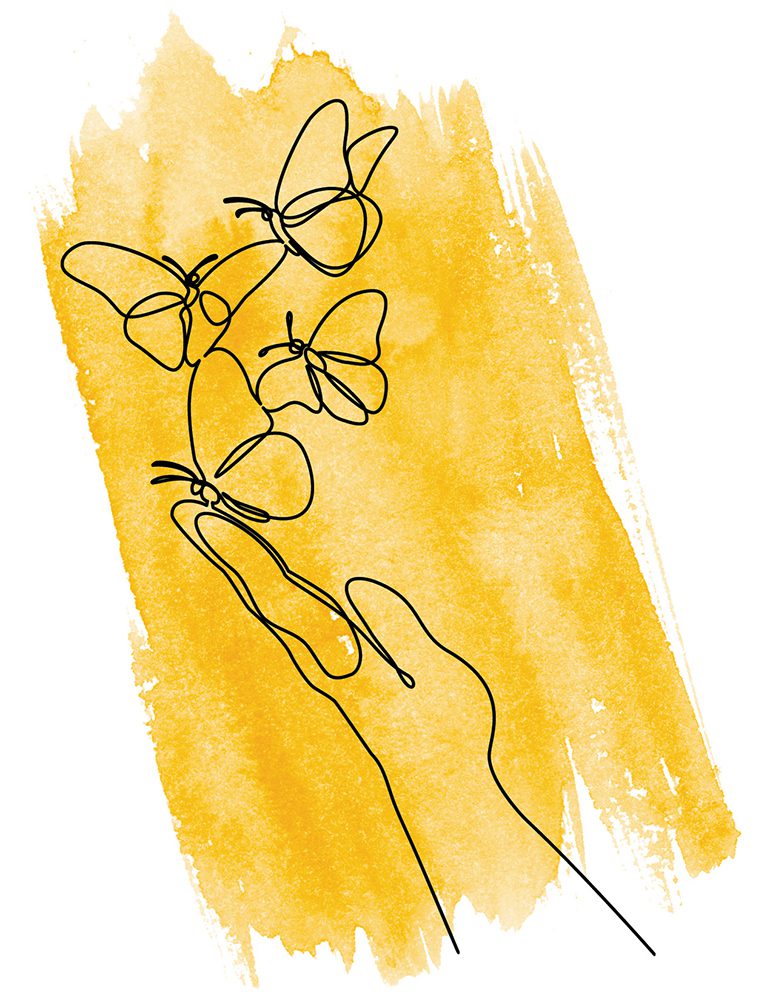
Resilience—because you are more than a score.
Since this study, we’ve also learned that resilience—or the ability to bounce back from life’s stresses—can allow us to reduce or overcome the effects of ACEs.
Resilient kids
Raising kids can be challenging. Thankfully, there are programs to connect to other parents and to learn and practice new skills.

Healthy Oxford Hills • 181 Main Street, Norway, ME 04268 • (207) 744-6191
